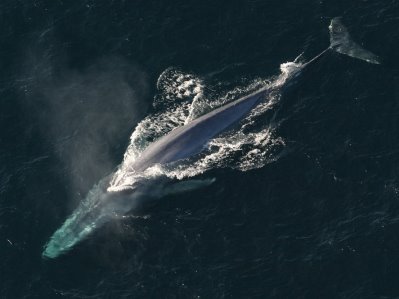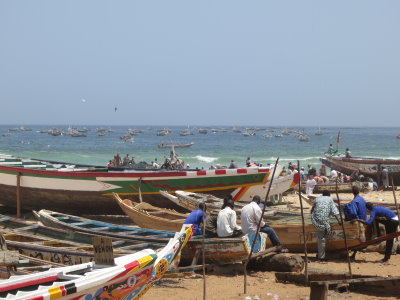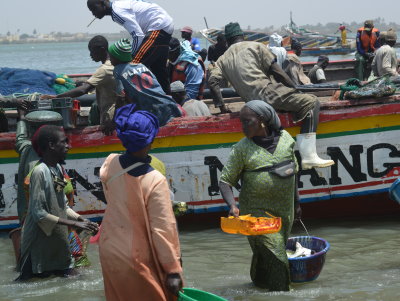by Dr Mechthild Kronen
 Germany’s Federal Ministry for Economic Cooperation and Development (BMZ) has developed an action plan to protect more marine areas, organise a larger share of worldwide fishing in a sustainable way and let less rubbish end up in the oceans. Under the topic ‚Making Waves‘ Dr. Gerd Müller, Federal Minister for Economic Cooperation and Development (BMZ), invited a high-level panel discussion, with the aim of finding solutions to marine conservation issues that will ensure sustainable global development. This panel was held on 18th May 2016 at the GEOMAR Helmholtz Centre for Ocean Research Kiel. The occasion served to presenting the BMZ’s new Strategies and Instruments for working together for marine conservation in development policy.
Germany’s Federal Ministry for Economic Cooperation and Development (BMZ) has developed an action plan to protect more marine areas, organise a larger share of worldwide fishing in a sustainable way and let less rubbish end up in the oceans. Under the topic ‚Making Waves‘ Dr. Gerd Müller, Federal Minister for Economic Cooperation and Development (BMZ), invited a high-level panel discussion, with the aim of finding solutions to marine conservation issues that will ensure sustainable global development. This panel was held on 18th May 2016 at the GEOMAR Helmholtz Centre for Ocean Research Kiel. The occasion served to presenting the BMZ’s new Strategies and Instruments for working together for marine conservation in development policy.
The 10-Point Action Plan for Marine Conservation and Sustainable Fisheries provides BMZ’s new strategy to address major challenges by considering their cross cutting nature. It also promotes the necessary cooperation of public organisations, research and science, the private sector and civil societies.
The Blue Action Fund (BAF) is a new BMZ fund set up to support non-governmental organisations working in international marine conservation. The BAF is a response to the necessary cross-border approach to achieve coastal and maritime conservation. By setting up marine conservation areas, the BMZ wants to protect or restore habitats and fish nurseries. According to the ministry, important food chains will thus be preserved, and fish stocks can recover. Fishermen will benefit from higher yields. The BMZ emphasises that linking protection and utilisation is a core issue the Blue Action Fund will pay attention to.
 Thus, in the framework of the German financial cooperation (FZ) 15 Million Euro will be provided for the Blue Action Fund (BAF) to support measures aiming at preserving networks of globally important coastal and marine protective areas. Also it will co-finance international non-governmental organisations to improve the management of globally important maritime and coastal protective areas in cooperation with relevant institutions. The BAF will support the following components:
Thus, in the framework of the German financial cooperation (FZ) 15 Million Euro will be provided for the Blue Action Fund (BAF) to support measures aiming at preserving networks of globally important coastal and marine protective areas. Also it will co-finance international non-governmental organisations to improve the management of globally important maritime and coastal protective areas in cooperation with relevant institutions. The BAF will support the following components:
-
Protection of maritime biodiversity through the establishment, management and surveillance of maritime protective areas and their carrier areas (including establishment of new protective areas), Fisheries surveillance and cross-border coordination;
-
Support of the sustainable use of maritime biodiversity particularly concerning the sectors of sustainable fisheries, aquaculture and ecotourism;
-
Establishment of alternative income sources and awareness raising, information and establishment of incentive systems for non-extractive use;
-
Knowledge transfer for instance through data collection on biodiversity and the international exchange of experiences.
 The project areas include ecological valuable coastal and maritime areas in selected regions of Africa, Latin America and the Caribbean as well as Asia. The population living in the coastal and maritime areas concerned and/or people depending on them for their livelihood are the principal group of beneficiaries.
The project areas include ecological valuable coastal and maritime areas in selected regions of Africa, Latin America and the Caribbean as well as Asia. The population living in the coastal and maritime areas concerned and/or people depending on them for their livelihood are the principal group of beneficiaries.
Both, the 10-Point Action Plan and the Blue Action Fund are a response to the fact that over two thirds of the BMZ‘s partner countries are island or coastal states. In order to preserve these coastal habitats for future generations and to ensure that they are used in a sustainable manner, the BMZ is intensifying its development activities in the areas of marine conservation and sustainable fisheries.
Also, the 10-Point Action Plan and the BAF are part of Germany’s Charter for the Future "OneWorld – Our responsibility“ that was presented in Berlin on 14th November 2014 by Chancellor Angela Merkel and Dr. Gerd Müller.
In this context, part of the implementation of the 10-Point Action Plan, in particular the four points referring to fisheries, are being implemented by a Global Programme on sustainable fisheries and aquaculture in the framework of the Special Initiative "A World without Hunger" (SEWOH). The 10 Point Action Plan and the BAF also have a strong link to Germany’s commitment to the Agenda 2030.








